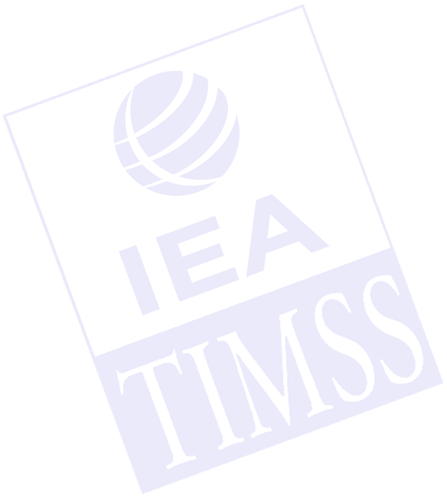PRESS RELEASE – February 24, 1998
International Study Finds the Netherlands and Sweden Best in Mathematics and Science Literacy
Report Shows Student Achievement in Final Year of Secondary
School for 24 Countries
Advanced Mathematics and Physics also Tested
CHESTNUT HILL, MA (2-24-98) -- The Netherlands and Sweden were the top-performing countries in mathematics and science literacy in the final year of secondary school according to the most recent major reports of the Third International Mathematics and Science Study (TIMSS), released today by a team of researchers at Boston College. France led in advanced mathematics, and Norway and Sweden in physics.
 Lowest-performing
countries in mathematics and science literacy included Cyprus and South Africa.
The Czech Republic, the United States, and Austria were among the lowest-performing
countries in both advanced mathematics and physics.
Lowest-performing
countries in mathematics and science literacy included Cyprus and South Africa.
The Czech Republic, the United States, and Austria were among the lowest-performing
countries in both advanced mathematics and physics.
TIMSS is the largest international study of student achievement ever undertaken, including more than 40 countries and half a million students at five grade levels. The results released today complement those released in November, 1996 for 41 countries at the seventh and eighth grades, and in June, 1997 for 26 countries at the third and fourth grades.
"In most countries, there was a substantial gender difference favoring males on all three tests," said TIMSS International Study Director Albert Beaton, a professor in Boston College's School of Education.
According to the report, males outperformed females in all but one of the 21 countries testing in mathematics and science literacy. Similarly, males outperformed females in physics in all but one of the 16 countries testing in physics, and in 11 out of 16 countries testing in advanced mathematics.
Other key mathematics and science literacy findings include:
- When the mathematics and science results for literacy were separated by
subject, Denmark, France, Hungary, Lithuania, and Switzerland did better
in mathematics, and Canada, the Czech Republic, Iceland, Norway, the Russian
Federation, Sweden, and the United States did better in science.
- In about half of the countries, students seemed to take mathematics throughout
secondary school, regardless of their educational program or track, whereas
in Canada, Iceland, the Netherlands, Switzerland, and the United States
one-third or more of the final-year students were not taking mathematics.
Higher percentages of students in most countries reported that they were
not taking science (about half or more in Canada, the Czech Republic, Denmark,
Norway, Sweden, Switzerland, and the United States).
- Typically students reported spending most of their out-of-school time studying (2-3 hours per day) and socializing (up to 2´ hours per day). This varied across countries, however, as did the time spent working at a paid job. In about half the countries, most students spent little time at a job, but in Australia, Canada, Iceland, the Netherlands, New Zealand, Norway, and the United States, at least one-fourth of the students reported working for three hours or more each day.
To address the current educational reform emphasis on innovative strategies for improving instruction, the TIMSS researchers asked advanced mathematics and physics students about their classrooms. Indicators associated with high mathematics achievement included frequently solving equations and doing reasoning tasks. Calculator use was also characteristic of high performance. "Most final-year students reported considerable use of calculators, whether at home, school, or work, and this was especially true for the students having taken advanced mathematics or physics," said TIMSS International Deputy Study Director Michael Martin. "On all three tests, students who reported using calculators daily performed well above those who rarely or never used them."
TIMSS also asked students about their plans after secondary school. Not surprisingly, students following academic programs or tracks often reported that they planned to attend university. In particular, the future plans of students taking advanced mathematics and physics centered on university. "Interestingly, however," said TIMSS Co-Deputy Study Director Ina Mullis, "most of these students do not plan to study mathematics or physics. The most popular choices include engineering, business, and health sciences."
TIMSS is sponsored by the International Association for the Evaluation of Educational Achievement (IEA), an independent international cooperative of research centers headquartered in Amsterdam. IEA Chairman Tjeerd Plomp characterized the study as "a genuine international endeavor in which countries from all regions of the world came together to study the teaching and learning of mathematics and science.
“This latest TIMSS report for secondary school students completes a series spanning primary, middle, and secondary schools. TIMSS now provides a comprehensive international perspective on student achievement in mathematics and science from the primary through the secondary school years. Taking into account all of its components, including curriculum and achievement," said Plomp. "TIMSS provides a unique opportunity for countries to examine the content and rigor of what is being taught and learned in science and mathematics classrooms throughout primary and secondary schooling."
The report released today:
Mathematics and Science Achievement in the Final Year of Secondary School: IEA's Third International Mathematics and Science Study
presents internationally comparative achievement results in mathematics and science literacy, and in advanced mathematics and physics, for students in the final year of secondary school.
International coordination for TIMSS is funded by the U.S. Education Department's National Center for Education Statistics (NCES), the U.S. National Science Foundation, and the Canadian Government. Each country provides its own funding for the national implementation of TIMSS.
[For more information, call the Boston College Office of Public Affairs at 617-552-3350.]





